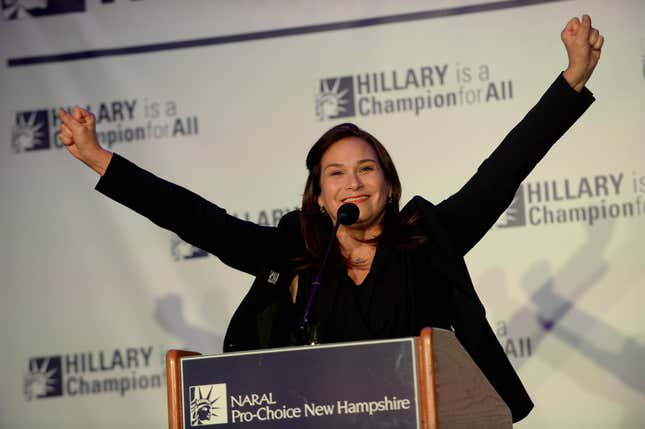NARAL Pro-Choice’s President, Ilyse Hogue, Is Stepping Down
The president of NARAL Pro-Choice, one of the largest abortion rights groups in the country, announced on Monday that she was stepping down
JusticePolitics

The president of NARAL Pro-Choice, one of the largest abortion rights groups in the country, announced on Monday that she was stepping down.
Ilyse Hogue has led the organization since 2013, when Democrats held both the Senate and the White House, and enjoyed a comfortable liberal majority on the Supreme Court. Though superficially it might seem as though Hogue’s departure arrives amid similar political circumstances—with another Democrat in the White House and Democratic majorities in the House and Senate—the landscape of abortion access has changed dramatically over the last eight years, and the threats to abortion rights have only become more dire.
“I remember sitting in a conference room, Nov. 13, 2016, after Trump was elected, with my senior leadership and saying, ‘What is our most urgent imperative in this moment?’ And it was clear to us that was building awareness of political power around the courts,” Hogue told the New York Times. “The peril to Roe, the peril to reproductive freedom comes from the courts.”
-

-

-

-

-

-

-

-

-

-

-

-

-

-

-

-

-

-

-

-

-

-

-

-

-

-

-

-

-

-

-

-

-

-

-

-

-

-

-

-








































